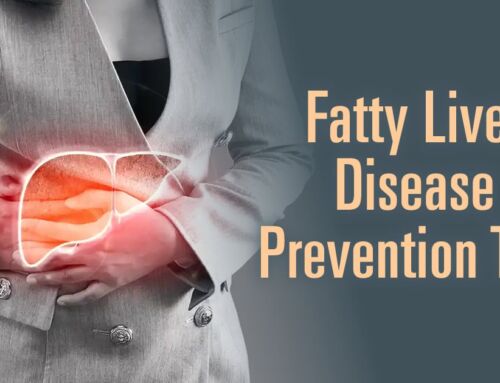You know that tight, knotted feeling you get in your stomach when your stress levels are rising? It might cause you to have to run to the restroom … Or eat everything in sight?
We know stress has a dramatic effect on overall health and happiness. But did you also know that stress plays a significant role in the health of your gut? The truth is that increased pressure is responsible for a host of digestive health issues.
When you throw in the stressful effects of living in a world dealing with a pandemic, you, unfortunately, have the perfect stress storm. Our way of life now was unfathomable just a few months ago. This change on top of living in fear of being a victim of the virus, and it becomes a lot to take in.
If you’ve been feeling increased stress, anxiety, or just plain feeling off, then listen up. To explain how your digestive health is tied to stress, let’s jump right into the gut-brain connection. We’ll also cover the damaging effects of chronic stress and how turning to alcohol isn’t the answer during stressful times.
The Gut-Brain Connection
The gut-brain connection or the enteric nervous system (ENS) is a complex network of connections between your brain and your gut. This intricate dynamic is why you can literally feel stress in your belly when your mind is racing. It’s also the reason why your stomach begins producing acids for breaking down food before you’ve eaten, just by thinking about eating.
Your gut and brain communicate through what works like a telephone line, and it’s called the vagus nerve. The vagus nerve is the longest cranial nerve in your body and one of the most important. One of its roles is to aid in digestion and gut movement. It also sends signals from the gut to the brain.
In addition, your ENS is also affected by your gut microbiome. Your microbiome is made up of colonies of bacteria that live in your intestines. When it’s unbalanced, you can experience digestive problems. In order to keep your gut and brain healthy, your gut microbiome and ENS are in constant communication with one another.
How Does Stress Affect Your Gut?
Stress triggers a fight or flight response within your body. Because of this, your central nervous system begins pumping blood to your heart and muscles. This slows the blood flow to your abdomen, resulting in a slowing or stoppage of digestion. The slowing of blood flow can cause constipation, indigestion, and nausea.
Stress also increases overall inflammation within the gastrointestinal system, which can lead to digestive disorders and an imbalance of your gut microflora. When you’re stressed, your esophagus becomes inflamed and hypersensitive. The spasms that are created in your throat cause more acid to be produced in your stomach leading to heartburn and gastroesophageal reflux disease (GERD).
Overall, it’s important to point out that digestive symptoms of stress are not just in your head. There’s a genuine connection between what you think and what you physically experience. This is why the gut is often referred to as your “second brain.”
Can Stress Cause Weight Gain?
When your fight or flight mode is activated, your body releases cortisol, a stress hormone. This helps you be alert and ready to handle intense situations. The problem is that increased cortisol levels lead to an increased appetite. When you combine excessive eating with cortisol’s effect on increasing abdominal obesity, you have a recipe for weight gain.
The consequences of gaining weight and obesity include:
- Cardiovascular disease
- Diabetes
- Irritable bowel syndrome (IBS)
- GERD
- Nonalcoholic fatty liver disease
- Gallstones
- Inflammatory bowel disease
As you can see, stress has adverse, cascading effects within your body. What starts as a bit of stress can snowball into long-term health issues.
Chronic Stress and Your Gut
When your stress becomes prolonged, it can cause even more problems with your gut health, including:
- Diarrhea
- Nausea
- Bloating
- Cramping
- Constipation
These issues may not seem dangerous in and of themselves, but they can become more serious when you’re continually experiencing stress. Some of these more severe concerns include:
- IBS
- GERD
- Peptic ulcers
- Overgrowth of “bad” intestinal bacteria
Chronic stress can drastically impact your gut health. While it’s impossible to avoid stress altogether, it’s essential to find ways to cope and relieve stress that is both healthy and effective. And don’t worry, we’ll touch more on this in a bit.
How Alcohol Affects Your Digestive System
This stressful time in our world has led many to consume more alcohol than they did previously. What seems like an innocent drink or two can quickly turn into an every night habit and at increasing volumes. Social isolation, combined with job loss for many, is an uncharted territory that we just aren’t prepared to handle.
But turning to alcohol as a means of coping can have some severe consequences for your digestive health, including:
- Alcoholic gastritis
- Acid reflux
- Peptic ulcers
- IBS
- Leaky gut
- Cancers of the digestive system
These issues can lead to a serious illness called alcoholic liver disease. The good news is that in the early stages, reducing or eliminating your alcohol intake can reverse this disease. But if it progresses to late stages, it can be fatal.
So while you may not think this could happen to you, many people greatly underestimate and underreport how much they really drink. Monitoring your drinking and being accountable for your alcohol intake is crucial to avoiding health complications associated with excessive drinking.
Best Ways to Reduce Stress for Optimal Gut Health
Now that you know how stress affects your digestive health, let’s move into some ways you can reduce your overall stress. Here we’ll cover some easy ways to reduce your overall stress levels.
Exercise — Even just a stroll around your neighborhood helps lighten your mental load. Plus, a change of scenery is always nice, especially during these trying times.
Talk with someone you trust — This can be a friend or a family member who is someone you can have a more in-depth conversation with. Talking about your feelings helps to release the stranglehold they can have on your gut, in turn making you feel better.
Eat healthier — Fueling your body with quality food is an integral part of reducing stress. When you load up on junk food like chips and candy, your blood sugar can tank afterward, leading you to feel cranky and tired. Keep healthy choices at home to avoid stress eating.
Get more restful sleep — Aim to go to bed and get up at a consistent time each day. Also, the room you sleep in should be dark, cool, and noise-free to allow for restful sleep. As tempting as it can be to stay up just a bit later to get things done, make it your goal to avoid that temptation. Rest is an important part of a healthy lifestyle.
Do something fun — This might seem obvious, but when was the last time you did something fun? Something you love doing that brings you joy? If you can’t think of an answer, it’s time to start making fun a part of your schedule. Maybe you used to have a hobby long ago that you can pick back up. Or perhaps it’s laughing with a few close friends over coffee.
No matter what you like doing, just make sure you’re doing more of it to help relieve stress. Your digestive system will thank you for it.




